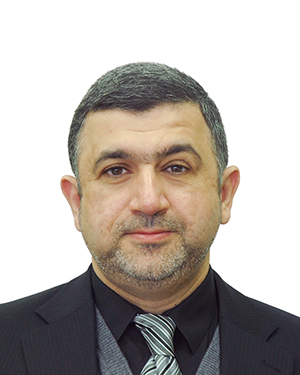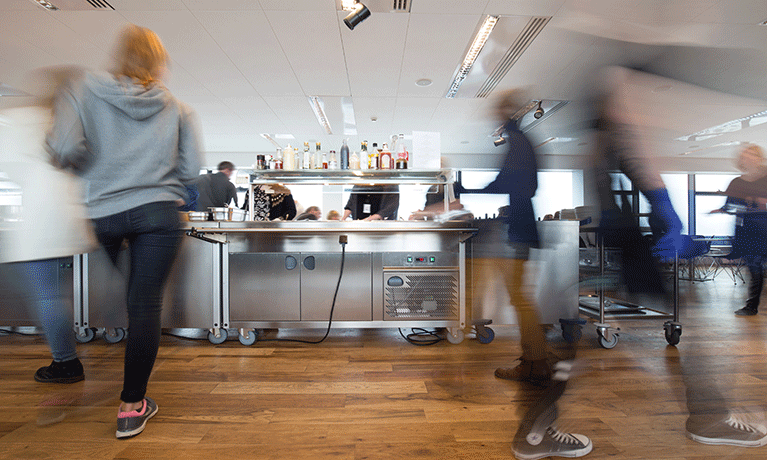Can you tell us a little bit about your background?
I gained my BSc in operational research in 1995. After my graduation I joined MSc in operational research and statistics and completed it in 1997. This was followed by my PhD completion in 2010 in the area of computer simulation and optimisation. During my PhD study I worked closely with the precast industry through Enterprise Simulation for Precast Concrete Operations (ESPCO) project to improve their manufacturing productivity. I developed simulation models for Stanton Bonna Concrete Ltd (manufacturing-warehouse simulation model), Tarmac Precast Concrete Ltd (simulation optimisation modelling for optimal resource allocation), Bison Manufacturing Limited and the Aggregate Industries (process maps and workflow modelling). In addition, I had assisted John Porter Ltd, one of the largest door-sets manufacturers in the UK and Schmitz Cargobull from the Trailer industry in improving their efficiency by using simulation technology.
I joined Coventry University in 2010 as a senior lecturer of business information systems. During my work at the University I have supervised and linked a number of our MSc/ MBA students with the local industry for real life projects. Some of the outstanding students’ projects were with the RS Components warehouse (packing lanes modelling), and Triton Shower (optimising performance of assembly operations). World leading simulation software, ARENA Rockwell is being taught to our postgraduate students for a better practice and employability.
What is your area of expertise?
My research interest is simulation and optimisation of complex business problems. This includes the manufacturing and the logistics sides of the business. I use both analytical and simulation techniques to model uncertainties and optimise complexities inherited in real life systems. In the simulation context, I use Discrete Event, Agent-Based or a hybrid of both as modelling methodologies to provide the best imitation of actual systems behaviour. In optimisation, I utilise and modify a number of the Artificial Intelligence (AI) algorithms to achieve best solutions for complex business problems.
Within Simulation what previous projects have you been involved in?
I had been involved in a Coventry University grand challenge project for integrated control and brokerage centre. This three year project was funded by the Technology Strategy Board aimed at reduction of carbon foot print. During this project, I used simulation optimisation technology to justify a number of the suggested operational strategies against the generated carbon foot print. These strategies varied from scheduling of onsite resources (overhead cranes, reach stackers, forklifts etc) to offsite resources (vehicles and transporters) under high level of uncertainty. These strategies are then ranked based on the generated carbon print.
I successfully developed a decision support system to improve performance of the container handling operations on a daily basis. This was achieved by imitating and simulating the containers handling operations using simulation optimisation spreadsheet modelling. This was enabled by linking spreadsheet modelling concepts with the simulation optimisation technology in order to produce a transparent container management simulation tool. Following the successful modelling of this part of the investigation 18% of the average service time of a predefined number of trains was achieved. This significantly led to reduction in the waiting time of vehicles to collect and/or deliver cargo leading to a significant reduction in fuel consumption. In addition, optimisation of crane scheduling across each train led to a significant reduction in the distance travelled by crane movement systems leading to a reduction in fuel usage and machinery failures.
Can you tell us a little bit about your recent completed projects?
The Pii Project
I have completed a project with the Sheldon and Clayton Logistics Group. This project aimed at using computer simulation to improve their warehousing operations. My role in this project was to identify logic of the current warehousing operations then simulate it for better practice of operations. The IT manager of Sheldon Clayton stated that “Dr. Al-Bazi managed the project in a very professional manner. He and his team quickly understood the projects goals and objectives. The methodologies and tools we have gained from the project will certainly be applied to the business and aid with future resource forecasting”. As an output, 60% reduction in the average waiting time of palates was achieved by enabling additional Lorry entrance for goods-in operation. The pallets average waiting time was reduced by 10% after increasing number of the check-in operation resource to 5.
The UEES Project
Currently and in response to Coventry University and Unipart Manufacturing Group collaboration, I have managed to supervise a PhD research student in the area of manufacturing engineering. The scope of this research will enable in developing and implementing new advanced manufacturing methodologies to the Unipart Eberspächer Exhaust Systems Ltd (UEES) and its clients.
How do you see the future of Simulation Technology developing?
The industry requires more transparent simulation optimisation tools for easier model building and optimisation purposes. This will be achieved by developing sophisticated simulation methodologies alongside with the related optimisation algorithms within the spreadsheet environment. The new generation of simulation as I can see is that developing sophisticated methodologies for cloud simulation. These methodologies should enable more optimisation opportunities rather than merely experimentations. This sort of new generation of cloud developments will enable different parties across the world to work on one simulation project. Dissemination of outputs between these parties will be easier and faster.





Comments are disabled